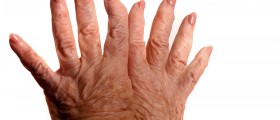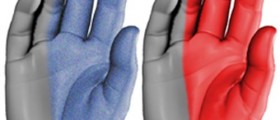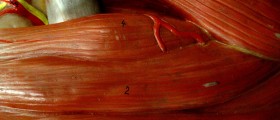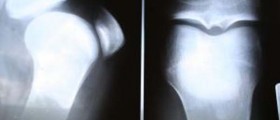
Numbness in the fingers and arm pain
An unusual sensation of tingling and numbness in the fingers along with arm pain can strike for several reasons. These numb and tingling feelings in the fingers can occur at night or during the day, and episodes of numbness and tingling can last anywhere from couple of minutes to a couple of hours.
A person who is suffering from tingling and numbness in the arm usually doesn't have much sensation in that part of the body — they will be less sensitive to other stimuli, such as cold or hot temperatures or someone pinching them. This numbness and tingling is usually harmless, but can sometimes point to underlying medical conditions that have serious consequences.
What can cause arm pain and numb fingers?
Numbness in the fingers that is accompanied by arm pain can be caused by many reasons, but one of the most common factors is pressure. If pressure is the cause of your numbness, tingling, and arm pain, the symptoms usually strike during the night, particularly if you accidentally apply pressure to your hand, by placing it under your head, and go to sleep that way.
After some time, you will start experiencing numbness and feeling a tingling sensation.
Any kind of an injury can also cause numbness and pain in the arm. Physical injuries like fractured fingers, elbows, and arm bones or other kinds of trauma (such as accidents) can lead you to have pain and numbness in your arm.
Another cause of arm pain and numbness is triggered by damaging the median nerve, due to constant pressure to the arm or injury. It is called carpal tunnel syndrome and it is most frequently seen in computer or IT workers, musicians, and athletes.
Multiple sclerosis (MS) is caused by damaged nerves, affected by the immune system. It is still unknown what triggers multiple sclerosis, but here, the numbness and arm pain are usually experienced in one arm — a person may experience tingling only in the left arm and fingers, or only in the right arm and fingers.
The next cause of the arm pain and numbness is also unknown and it is called a ganglion cyst. A ganglion cyst is a cyst or a lump that grows on the wrist and contains some fluid. The cyst is usually totally painless, but if you put it under pressure, you can experience numbness, as well as pain, in your entire hand and even arm.
Tennis elbow is a condition that can occur after a person uses the arm too much and too often. People most at risk of developing tennis elbow are smiths, painters, tennis players, and others who make repetitive movements with their arm all the time. They can experience severe pain and numbness in their arm when the develop tennis elbow, and tingling sensations are also possible.
One more possible cause of arm pain and numbness, specifically left arm pain and numbness in the fingers, is angina pectoris. Angina pectoris is a condition caused by coronary heart disease and it reduces the supply of oxygen to the heart. Its symptoms are shoulder pain, chest pain or tightness, left arm pain, and numbness in the fingers.
How can tingling sensations and arm pain be treated?
In case a tingling and numbness sensation in your arm is present for couple of minutes, you don't really have to worry — you probably overexerted yourself, slept awkwardly, or even bumped your arm in an specific way.
But if numbness, tingling, and pain in the fingers and arms last for more than a couple of hours, or you often experience these symptoms, you should seek professional help from a doctor. Medications, rest, or physical therapy can help you get rid of the arm pain and numbness, depending on the underlying cause.
However, surgery is sometimes required as is the case in people who suffer from a ganglion cyst or tennis elbow if not successfully treated with painkillers, rest, and physical therapy. Carpal tunnel syndrome can be treated with the help of anti-inflammatory drugs and corticosteroids, as well as other therapies and medications. Treating multiple sclerosis takes physical therapy and several medications.
You should immediately visit a doctor if you experience arm pain and numbness due to angina pectoris, or you suspect you do. Pay attention to the symptoms that your body sends to your mind — other symptoms of angina include feelings of heaviness, pressure, burning, or squeezing. Angina pectoris, also called stable angina, usually happens when you exert yourself. If it's not your first episode, you will come to expect it. Do not see it as normal, though, because angina is a sign that you need medical help.









-in-Multiple-Sclerosis_f_280x120.jpg)







Your thoughts on this
Loading...